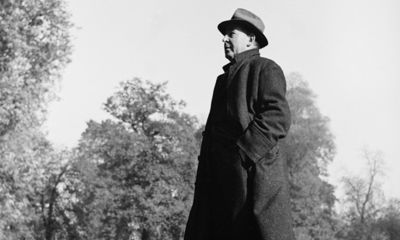In this week’s TLS – a note from the Editor
The philosopher Anthony Kenny, one of the clearest modern writers to wrestle
with the difficulties of Christian belief, this week considers the religious
warfare within the work of C. S. Lewis. Reviewing a new biography of the
author of the Narnia stories, he praises its careful correction of many
previous accounts, that by Lewis himself being the one “most in need of
emendation”. He notes the argument over whether Elizabeth Anscombe, a more
formidable Christian philosopher than Lewis by far, was rewarded for her
ferocity by a characterization as the White Witch. Nowadays, Lewis’s
theological works “preach mainly to the converted”.
Battles between Christian and pagan were no less fiercely fought among the
ancient commentators on Aristotle. David Sedley praises the ninety-ninth
volume of a massive project of the past twenty-five years to translate into
English all the scholarship of such men as Simplicius and John Philoponus,
great scholars with an immense armoury of scorn and “derogatory epithets”.
Volume Ninety-nine concerns the offence to Christian doctrine caused by
eighteen different fifth-century arguments for the world’s having no
beginning and no end.
Oscar Wilde’s interest in ancient philosophy is familiarly described in terms of
“Plato and sexual intimacy between men”, writes Joseph Bristow, reviewing a
new study by Iain Ross. The influence of Wilde’s archaeologist father is
often neglected. The playwright had a very “advanced classical education”,
and was deeply imbued with the conflict between the new archaeology and more
traditional textual criticism. In extending the feuds of scholars into The
Picture of Dorian Gray the author, however, goes a little too far.
There has been no more potent explosion of Christianity and paganism in the
modern age than Stravinsky’s The Rite of Spring, described by
the composer’s friend Robert Craft in a centenary appreciation as “the image
of God as expressed in the primitivism of pagan Russia”. Craft interprets
Stravinsky’s own faint pencilled instructions on how the work should be
danced.
Peter Stothard
NB Take part in the TLS Reader Survey and win £50 in Amazon.co.uk Gift Certificates (UK & ROI only).
Peter Stothard's Blog
- Peter Stothard's profile
- 30 followers




